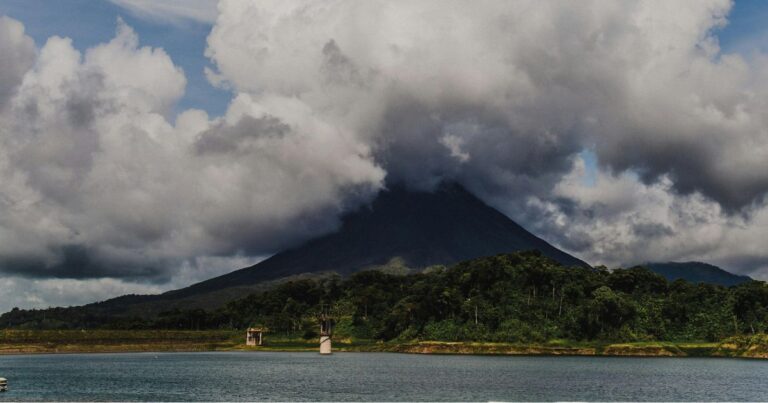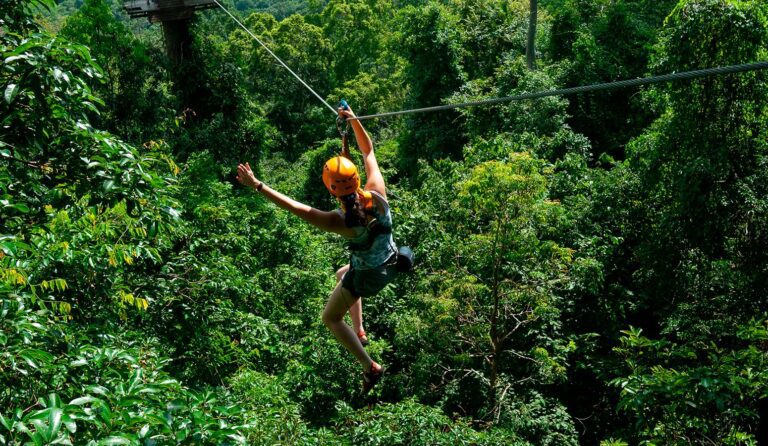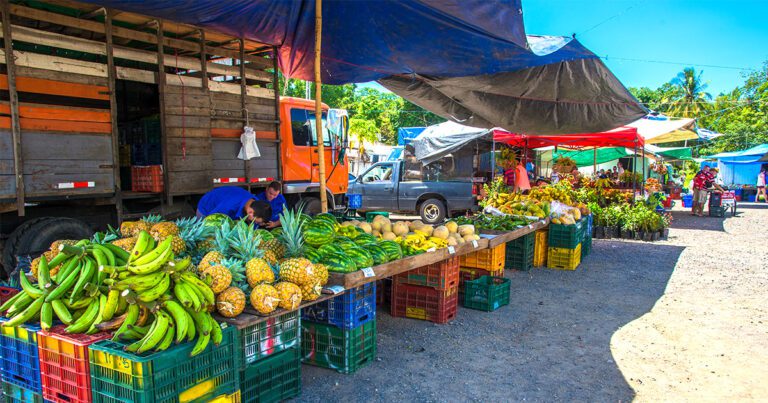Traveling to Costa Rica involves navigating the country’s customs process, which can seem a bit daunting at first. Luckily, Costa Rica customs process is relatively simple once you understand the basics. As a traveler, understanding the customs process will help you enjoy your visit without unnecessary complications. This includes knowing the forms you need to fill out before entering the country.
One crucial aspect of the customs form is the “foreseen address.” This field is essential because it indicates where you will be staying during your time in Costa Rica. Filling this out correctly is important for a smooth entry. Customs officers may use this information to verify your travel intentions and ensure compliance with local regulations.
Providing the correct address helps avoid delays or questions about your travel intentions. Mistakes in this section can result in delays or even questions about your travel plans. Therefore, it’s important to take a moment and consider what address to provide. This detail may seem small, but it plays a significant role in your overall travel experience. Understanding the customs form, especially the foreseen address, helps set the right tone for your adventure in this beautiful country.

What Is Costa Rica Customs Form?
When traveling to Costa Rica, you might come across the Costa Rica customs form. This form is designed to gather essential information about travelers and their belongings as they enter the country. While customs forms are not always required as it is not typically given to all travelers unless requested, it’s important to understand what they entail if you do receive one.
The Costa Rica customs form plays a vital role in the entry process. It helps customs officials keep track of what travelers are bringing into the country. By collecting this information, they can better manage security and ensure compliance with regulations.
General Information Included on the Form
The Costa Rica customs form includes several sections where you need to provide specific details. Let’s break those down:
- Personal Information: You will need to fill in your last name and first name. Additionally, there’s space for your mother’s maiden name, but this is optional.
- Nationality and Gender: You need to indicate your nationality and your gender.
- Birth Details: The form requires your date of birth, which helps to confirm your identity.
- Residence Information: You will list your country of residence and the country you originated from.
- Flight Information: This section asks for your passport number, flight number, and the airline you traveled with.
- Destination Address: You’ll also need to write down the name of your first hotel or accommodation in Costa Rica. If you’re staying in an Airbnb, provide that address as well, along with the town or beach name.
Filling out this form is generally straightforward. It takes just a few minutes, and having this information on hand can make your customs process smoother.
Overall, the Costa Rica customs form is an important part of your arrival in the country. It helps customs officials keep track of travelers and their belongings. By understanding the sections of the form, you can prepare ahead of time and make your travel experience more enjoyable.

What Is the Foreseen Address on the Costa Rica Customs Form?
When you travel to Costa Rica, you’ll encounter the customs form that requires you to fill out several details. One important piece of information you need to provide is your foreseen address. This term refers to the address where you will be staying or your first destination in Costa Rica.
Definition of Foreseen Address
The foreseen address is where you’ll spend your initial nights in Costa Rica—whether it’s a hotel, vacation rental (like an Airbnb), or even a friend’s house. It is not your permanent home address but your temporary location while in the country.
For instance, if you are traveling from Canada and plan to stay at a hotel in San José, you would list that hotel’s address on the customs form. This helps customs officers understand where you will be residing while in Costa Rica.
Importance of the Foreseen Address
Why does this field matter to customs officers? Well, providing a foreseen address is crucial for several reasons.
- Compliance with Regulations: Customs officers need to ensure that you have a planned itinerary. This helps them identify potential overstays or illegal activities. By knowing where you will be staying, they can keep track of travelers more effectively.
- Emergency Situations: In case of emergencies, such as natural disasters or health issues, knowing your location allows authorities to reach you more easily. Imagine if there’s an earthquake or volcanic activity; having your foreseen address means you can receive timely information and help.
- Preventing Delays or Issues: If you fail to provide a foreseen address, it can lead to unnecessary delays during the customs process. Customs officers might have to ask additional questions, which can prolong your waiting time. Everyone wants to get through customs as quickly as possible. So, make sure to have your foreseen address handy and fill it out accurately!
Overall, the foreseen address is a vital part of the Costa Rica customs form. It identifies where you will stay during your visit and distinguishes it from your permanent home address. This information helps customs officers manage travelers and ensures you are well-supported in emergencies.
As you prepare for your trip, make sure to have your foreseen address ready—it will save time and make your arrival in Costa Rica smoother.

Step-by-Step Guide on Filling Out the Foreseen Address on the Customs Form
When you’re filling out the customs form for Costa Rica, one of the sections you’ll need to complete is the foreseen address. This is where you will indicate where you plan to stay during your visit. Let’s break it down step-by-step.
Step 1: Identify Your First Destination
Think about where you’ll be staying upon arrival. Is it a hotel, resort, or Airbnb? If you have a reservation, grab that info before filling out the form.
If you’re unsure, it’s still important to have a plan. Choosing a well-known hotel or a popular area can help. For example, if you plan to visit a beach, choose a beach hotel or a popular resort in that area.
Step 2: Write the Name of the Place
Next, you’ll need to write down the name of the hotel or rental. If it’s a hotel, include its full name. For instance, if you are staying at the “Beachfront Paradise Hotel,” write that down clearly.
If you booked an Airbnb, this might be a bit different. You can write down “Airbnb” along with the town or area where it is located. This is just to give customs officers a clear idea of where you will be.
Step 3: Include the Town or City
After the accommodation name, add the town or city. This is essential for clarity. For example, if you’re staying in San José, write that down. Be sure to spell the name correctly—this will help avoid confusion.
Common towns include Manuel Antonio, Tamarindo, or La Fortuna, but make sure to list the exact location.
Common Mistakes to Avoid
It’s easy to make mistakes on forms. Here are a few common errors travelers make and how to avoid them.
- Not Being Specific: Simply writing “Costa Rica” isn’t enough. Be sure to include the specific town or city.
- Leaving It Blank: If you’re unsure of your exact address, don’t leave it blank. Just write down your first destination to avoid any issues.
- Illegible Handwriting: Take your time to write neatly. Illegible handwriting can lead to confusion.
- Wrong Information: Double-check the name and spelling of your destination. It’s easy to miss a letter or mix things up.
Tips for Travelers Unsure of Their Final Destination
Sometimes, you might not have your exact address figured out. Here are some tips to help you out.
- Research Before You Go: Spend a little time online before your trip. Check popular areas and decide where you might want to stay.
- Flexibility is Key: If you’re planning to travel around, just write down your first stop. You can easily change plans later.
- Ask for Recommendations: If you’re uncertain, ask friends or check travel forums. Recommendations can lead you to great spots.
- Use a Placeholder: If you’re in a group and haven’t finalized plans, write down the name of a hotel in a central area. This can serve as a placeholder.
Filling out the foreseen address section on the customs form is a simple but necessary step. Knowing where you’ll be staying can make your entry into Costa Rica smooth.
Be clear, concise, and accurate with your information. It can help avoid delays in immigration. Remember, customs officers just want to ensure you have a safe and enjoyable stay. Keep these tips in mind, and you’ll be well-prepared for your trip.

Common Misunderstandings About the Foreseen Address
When filling out the customs form for Costa Rica, many travelers have misconceptions about the foreseen address section. Let’s clarify these misunderstandings so you can navigate the process smoothly.
Myth: You Can Leave It Blank
Some travelers think it’s fine to leave this section blank if they don’t know the exact address. However, leaving it blank can cause delays or complications at immigration. Instead, write down your first destination to provide a clear idea of where you’ll be staying.
Myth: It’s Enough to Write “Anywhere in Costa Rica”
Some travelers think that just writing “anywhere in Costa Rica” will suffice. However, this isn’t specific enough. Customs officials need a specific location to process your entry. Be sure to name a specific town or hotel to avoid confusion.
Myth: You Need a Hotel Address to Fill This Out
A common myth is that you must have a hotel address booked in advance. While a reservation is helpful, it’s not required. You can still provide the name of a town or a landmark if you’re staying with friends or haven’t made a booking yet.
Myth: Handwriting Doesn’t Matter
Some people think it’s okay to write carelessly as long as they provide the right information. Unfortunately, this can lead to misunderstandings. Take your time to write clearly and legibly. Customs officials must easily read your details.
Myth: It’s Not Important to Double-Check the Spelling
Another misconception is that small typos or spelling mistakes don’t matter. However, errors can cause delays. Always double-check the name of your destination and ensure it’s spelled correctly. This small step saves time and hassle.
Myth: You Can Change Your Address Later
Some might believe that they can adjust their address once they’re in Costa Rica. This isn’t the case. The address you provided on the customs form will be logged, so it’s best to fill it out accurately from the start.
Myth: You Don’t Need to Think About It
Travelers often assume they can fill this part out on the spot without any thought. However, taking a moment to consider where you’ll stay can help avoid unnecessary stress at customs.
By understanding these common misunderstandings, you can be better prepared for your trip to Costa Rica. Remember, providing a clear and accurate foreseen address is crucial for a smooth entry into the country.
Consequences of Incorrectly Filling Out the Foreseen Address
When traveling to Costa Rica, the foreseen address on the customs form may not seem like a big deal. But getting it wrong can lead to a lot of headaches. Let’s explore some potential consequences of incorrectly filling out this section.
Delayed Processing
One of the first issues you might face is a delay in processing your entry. If customs officials can’t read or understand your address, they may have to spend time clarifying it. This extra time can mean waiting in long lines at the airport. It can be frustrating when all you want is to start your vacation.
Potential Denial of Entry
In more serious cases, providing an incorrect address may lead to denial of entry. Customs officials need to know where you’ll be staying for security and tracking purposes. If they can’t verify your plans, they could very well turn you away at the border. This is something no traveler wants to experience.
Unforeseen Hassles
Imagine standing at customs and realizing your address is incorrect. You would have to fix it on the spot, which can be a bit stressful. This could lead to more questions and possibly additional paperwork. Instead of enjoying your arrival, you could find yourself caught up in complications.
Increased Questions from Customs
Providing ambiguous information can prompt more questions from customs officials. If your details aren’t clear, they may want to know more about your travel plans, which can lead to more time spent at customs.
Impact on Your Travel Itinerary
Lastly, any delay or complications can impact your travel plans. If you’ve arranged transportation from the airport, it could mean missing your ride. Adjusting your plans last minute can be stressful and could throw off your whole schedule.
Being aware of these consequences can help you take the process seriously. Filling out your foreseen address correctly is a simple step that can save you a lot of trouble later on. It makes your entry into this beautiful country much smoother.

Tips on Filling Up the Foreseen Address on Costa Rica Customs Form for Smooth Travel
Entering a new country can be a bit overwhelming, especially when it comes to filling out forms. In Costa Rica, there’s a specific section on the customs form that asks for your foreseen address. This detail helps immigration officials know where you’ll be staying. Here are some useful tips to ensure you fill it out smoothly
Know Your First Destination
Start by identifying where you’ll be staying first. This is usually your hotel or Airbnb. Having this detail ready will make the process easier.
Include the Hotel Name
If you’re staying at a hotel, write its name clearly. This helps immigration officials confirm your accommodations. You can also add the town or beach where it’s located.
Use Specific Airbnb Information
If you booked an Airbnb, include the full address. You can also write the name of the Airbnb if it’s well-known. The more specific you are, the better.
Double-Check Spelling
Before submitting the form, check the spelling of names and addresses. Even small errors can lead to confusion. It’s worth taking the time to be accurate.
Use the Correct Format
Make sure you’re using the format that Costa Rica recognizes. Follow the format: street name, number, and town. This can help avoid any misunderstandings.
Be Prepared for Changes
If your plans change after you fill out the form, don’t worry—just inform the customs officer about your new address. They’re used to handling these situations.
Keep It Simple
If you’re not sure about a specific detail, like your mother’s maiden name, you can skip it. It’s not mandatory. Fill out what you can confidently provide.
Write Neatly
Legibility is key. Write slowly and clearly so that customs officials can read your information easily. This small effort can make a big difference.
Filling out the foreseen address on the customs form doesn’t have to be stressful. By keeping these tips in mind, you can make the process smoother.
Other Costa Rica Customs Tips to Remember
When visiting Costa Rica, immersing yourself in the local culture can result in a more enriching and enjoyable experience. Understanding and respecting local customs is key to building strong connections with the people and enhancing your overall trip.
Here are some essential customs tips to keep in mind during your travels:
- Greetings Matter: Costa Ricans, or “Ticos,” often greet each other with a warm “¡Pura Vida!” (meaning “pure life”). This phrase embodies their laid-back, positive outlook. A handshake or a friendly hug among acquaintances is common, so don’t hesitate to engage in these greetings.
- Politeness is Key: Saying “por favor” (please) and “gracias” (thank you) is expected. A polite demeanor goes a long way, and making an effort to use these phrases in Spanish will be appreciated.
- Family is Central: Costa Ricans hold family values in high regard. Be respectful when discussing family, and if invited to a local’s home, it’s customary to bring a small gift, such as flowers or snacks, as a token of appreciation.
- Dining Etiquette: If you’re invited for a meal, it’s considered polite to wait for the host to start eating before you dig in. Additionally, finish all the food on your plate—leaving food behind is seen as wasteful.
- Dress Modestly: While Costa Rica is generally casual, dressing modestly is appreciated, especially in religious contexts or rural areas. Swimwear is acceptable at the beach—but cover up with appropriate clothing when leaving the beach.
- Personal Space and Touch: Costa Ricans may stand closer during conversations than what you might be accustomed to. This reflects warmth and friendliness, so don’t take it as an invasion of personal space.
- Respect for Nature: Given Costa Rica’s commitment to environmental conservation, practicing eco-friendly habits is important. Always dispose of trash properly, and be mindful of local wildlife and landscapes.
- Time Flexibility: The concept of time in Costa Rica is more relaxed than in many Western cultures. Being late to social gatherings is generally acceptable, but it’s still polite to inform your hosts if you’re running behind.
- Language Appreciation: While many Costa Ricans speak English, making an effort to speak Spanish, even if it’s just a few words, can enhance your interactions significantly. Locals appreciate any attempt to communicate in their language.
- Tipping Customs: In restaurants, a service charge of 10% is usually included in the bill. However, it’s customary to leave a small additional tip if you’re satisfied with the service. For other services like taxi rides, rounding up the fare is appreciated.
- Public Behavior: Displaying affection in public is generally accepted, but excessive displays may draw attention. It’s best to keep physical affection subtle and to respect the local norms regarding personal interactions.
By keeping these customs tips in mind, you’ll not only navigate social situations more smoothly but also demonstrate your respect for Costa Rican culture.
Frequently Asked Questions
In this guide, we will answer some of the most frequently asked questions about Costa Rica customs procedures, helping you navigate the country’s import and export regulations. Explore below to learn more.
What should I know about Costa Rica’s customs regulations when visiting?
When visiting Costa Rica, be aware that counterfeit and pirated goods are illegal and may result in fines or confiscation. You should also be prepared to declare certain items at customs, especially if they’re valuable or potentially restricted. Costa Rica has specific regulations about the import of goods, so it’s best to check the official customs guidelines before your trip.
Do I need a foreseen address if I’m visiting Costa Rica as a tourist?
Yes, when entering Costa Rica as a tourist, you are typically required to provide a foreseen address where you’ll be staying. This information is often requested on immigration forms upon arrival, so it is important to have it ready.
What if I don’t know my foreseen address at the time of entry in Costa Rica?
If you don’t know your foreseen address at the time of entry, it could complicate the immigration process. It’s advisable to at least have an initial accommodation address or make temporary arrangements that you can update later if needed.
Can I use the hotel address as my foreseen address?
Yes, you can use the hotel address where you plan to stay as your foreseen address. This is a common practice for tourists, and it should suffice for the purpose of immigration and customs forms.
Do I need to declare items when entering Costa Rica?
Yes, you need to declare certain items when entering Costa Rica, especially if they are of high value or fall under restricted categories. It’s important to be honest and thorough in your declarations to avoid any legal issues.
Can I change my foreseen address after arriving in Costa Rica?
Yes, you can change your foreseen address after arriving in Costa Rica. If you decide to stay at a different location, just ensure that you update any necessary documentation or inform local authorities if required.
Are there any items I cannot bring into Costa Rica as a tourist?
Certain items, such as firearms, illegal drugs, and counterfeit goods, are prohibited from being brought into Costa Rica. Always check the latest customs regulations to ensure you’re not carrying any restricted items.
Do I need to declare my cash when entering Costa Rica?
If you’re carrying more than a certain amount of cash, typically $10,000 or its equivalent, you must declare it when entering Costa Rica. This is to comply with international regulations on money laundering and financial transparency.
Do I need a local Costa Rican phone number to accompany my foreseen address?
While not typically required for entry, having a local Costa Rican phone number could be useful for staying in contact with accommodations or local authorities, but it is not mandatory to accompany your foreseen address.
Should I list the address where I plan to stay for the duration of my Costa Rica visit as my foreseen address?
Yes, you should list the address where you plan to stay for the duration of your visit as your foreseen address. This helps authorities know where you can be reached during your stay in the country.
How precise does the foreseen address need to be on the Costa Rica customs form?
The foreseen address should be as precise as possible on the customs form, typically including the hotel name, street address, and city. This precision helps ensure there are no issues with your entry or stay.
Conclusion: Navigating Costa Rica Customs with Confidence
All in all, we’ve covered everything tourists need to know about Costa Rica’s customs regulations and the importance of the foreseen address on the customs form. Whether you’re a first-time visitor or a seasoned traveler, understanding the Costa Rica customs process and ensuring your foreseen address is correct will help make your arrival smoother. We’ve broken down the steps, clarified common questions, and explained the significance of providing accurate information to avoid confusion or delays at the airport. By the time you reach Costa Rica, you should feel confident about what to expect and how to handle any necessary paperwork.
With these insights, we hope you feel more at ease about your entry into the country. From knowing what you can bring to understanding how to fill out the customs form, we’ve aimed to make it as straightforward as possible. With all this information at your fingertips, your entry to Costa Rica should be hassle-free, letting you focus on enjoying your time in this beautiful country. It’s all about preparation, and having this knowledge in hand will make your trip more enjoyable and less stressful.
Speaking of enjoying your time in Costa Rica, once you’ve cleared customs, why not make your adventure even more convenient by renting a car from Budget Costa Rica? We provide reliable rentals that suit your itinerary, no matter where your journey takes you. So why not ease your travel worries with one of our cars? Book a rental car now and start your adventure on the right foot!






